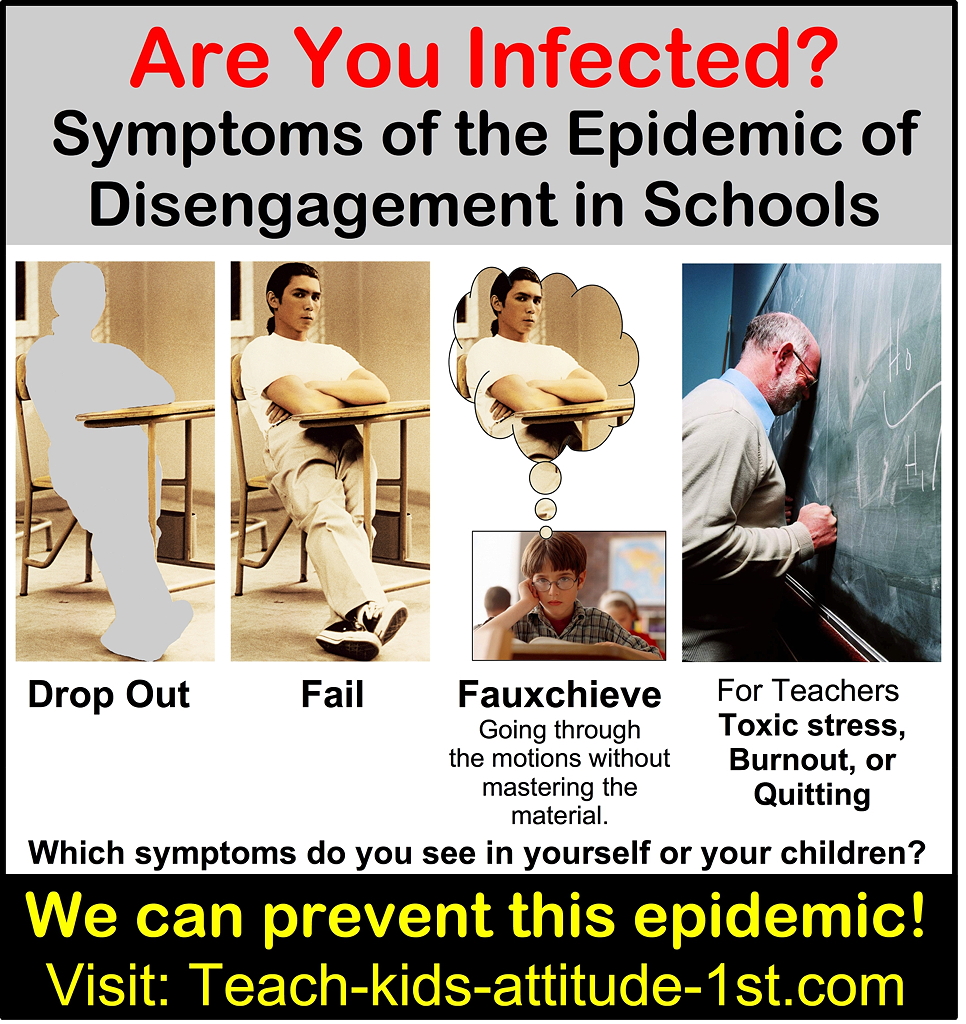Classroom management is a perennial topic for teachers.
Here's the most important secret that comes directly from psychological research: support the autonomy of your students.
The opposite of supporting your students autonomy is to be controlling.
Controlling your students is actually psychologically harmful.
If you use controlling techniques you will increase their symptoms of anxiety, depression, and create other forms of psychological distress.
Autonomy support, on the other hand, is psychologically nurturing.
You will get more engagement, positive emotions, and other forms of psychological well-being.
The behaviors for autonomy support and controlling are listed below.
After that are the reasons why U.S. teachers tend to be controlling instead of autonomy supportive, even though all the available evidence shows autonomy support to be more effective.
There are seven reasons and four of them have nothing to do with what goes on in the classroom.
Those four reasons beyond the classroom are what this site is devoted to changing through educational policy. When we achieve real change then deeper learning will become the new norm in schools.
Autonomy Supportive Instruction
Definition
Interpersonal sentiment and behavior teachers provide during instruction to identify, nurture, and develop students' inner motivational resources.
Enabling Conditions
Adopt the students' perspective. Welcome students' thoughts, feelings and actions. Support students' motivational development and capacity for autonomous self-regulation.
Instructional Behaviors
Nurture inner motivational resources. Provide explanatory rationales. Rely on non-controlling and informational language. Display patience to allow time for self-paced learning. Acknowledge and accept expressions of negative affect. |
Controlling Instruction
Definition
Interpersonal sentiment and behavior teachers provide during instruction to pressure students to think, feel, or behave in a specific way.
Enabling Conditions
Adopt the teacher’s perspective. Intrude into the students’ thoughts,feelings,or actions. Pressure students to think, feel, or behave in a specific way.
Instructional Behaviors
Rely on outer sources of motivation. Neglect explanatory rationales. Rely on pressure-inducing language. Display impatience for students to produce the right answer. Assert power to overcome students’ complaints and expressions of negative affect. |
Why isn't Autonomy Supportive Classroom Management Universal?
Autonomy support is a critical component of effective classroom management behavior because it is a central component of meeting the psychological needs of the people you manage.
Control is the opposite and control consists of behaviors that thwart the psychological needs of the people you manage.
This information on distinguishing autonomy support from control is based on studies of teaching, but is easily translated into other fields of behavioral management such as parenting and business.
It is natural to wonder why teachers use controlling classroom management behaviors when they should know that it is harmful to their students.
Fortunately, that has also been addressed in the research.
And this site is devoted to addressing the challenges of getting whole schools and districts to embrace autonomy support as the default mode of classroom management, as well as school management.
7 Reasons Why U.S. Teachers Fall Into The Control Habit
Pressure From Above (Outside the classroom)
Teachers occupy an inherently powerful social role.
Teacher-student interactions take place within a context of an interpersonal power differential.
Teachers harbor the dual burdens of responsibility and accountability.
Teachers routinely face job conditions steeped in accountability and responsibility for student behaviors and outcomes.
Teachers are aware that controlling is culturally valued.
The U.S. culture generally evaluates teachers who use controlling instructional strategies as more competent than teachers who use autonomy-supportive strategies.
Sometimes control is mistakenly equated with structure.
Controlling strategies are often inappropriately associated with a structured learning environment, whereas autonomy supportive strategies are often inappropriately associated with chaotic or laissez-faire one.
Pressure From Below (Inside the classroom)
Teachers react to student passivity during learning activities.
Episodically unmotivated or episodically unengaged students tend to pull a controlling style out of teachers.
Pressure From Within (Inside themselves)
Teachers mistaken belief in the maximal-operant principle.
Teachers may believe that large rewards can “turn on” students motivation. This belief suggests little awareness that
(a) rewards might also “turn off” students’ motivation and
(b) students already harbor inner motivational resources that are fully capable of self-generating the energy needed to engage in learning activities.
Teachers may harbor control-oriented personality dispositions.
Some teachers are motivationally or dispositionally oriented toward a controlling style.
Teachers occupy an inherently powerful social role.
Teacher-student interactions take place within a context of an interpersonal power differential.
Teachers harbor the dual burdens of responsibility and accountability.
Teachers routinely face job conditions steeped in accountability and responsibility for student behaviors and outcomes.
Teachers are aware that controlling is culturally valued.
The U.S. culture generally evaluates teachers who use controlling instructional strategies as more competent than teachers who use autonomy-supportive strategies.
Sometimes control is mistakenly equated with structure.
Controlling strategies are often inappropriately associated with a structured learning environment, whereas autonomy supportive strategies are often inappropriately associated with chaotic or laissez-faire one.
Pressure From Below (Inside the classroom)
Teachers react to student passivity during learning activities.
Episodically unmotivated or episodically unengaged students tend to pull a controlling style out of teachers.
Pressure From Within (Inside themselves)
Teachers mistaken belief in the maximal-operant principle.
Teachers may believe that large rewards can “turn on” students motivation. This belief suggests little awareness that
(a) rewards might also “turn off” students’ motivation and
(b) students already harbor inner motivational resources that are fully capable of self-generating the energy needed to engage in learning activities.
Teachers may harbor control-oriented personality dispositions.
Some teachers are motivationally or dispositionally oriented toward a controlling style.
Source: “Why Teachers Adopt a Controlling Motivating Style Toward Students and How They Can Become More Autonomy Supportive” by Johnmarshall Reeve, Educational Psychologist, 44(3), 159-175, 2009
Click here for a more detailed guide to classroom management from Edutopia.

No comments:
Post a Comment